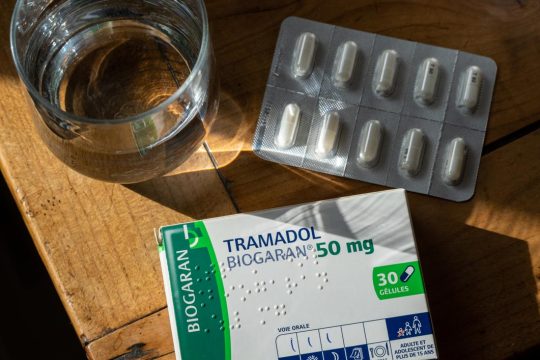Advertisment
Phase III HERO study of TAK 385 for prostate cancer published in New England Journal of Medicine.- Myovant Sciences
Myovant Sciences announced additional results from its Phase III HERO study of once-daily, oral TAK 385 (relugolix) (120 mg) in men with advanced prostate cancer in an oral presentation at the American Society of Clinical Oncology (ASCO)’s ASCO20 Virtual Scientific Program and simultaneous publication in the New England Journal of Medicine (NEJM). The data expand on earlier findings from the HERO study, demonstrating the superiority of relugolix to leuprolide acetate across multiple endpoints, and further show that treatment with relugolix was associated with a lower risk of major adverse cardiovascular events compared to leuprolide acetate.
Relugolix met the primary endpoint and demonstrated superiority to leuprolide acetate across six key secondary endpoints, all with p-values < 0.0001.
In the primary endpoint responder analysis, 96.7% of men receiving once-daily, oral relugolix achieved sustained testosterone suppression to castrate levels (< 50 ng/dL) through 48 weeks, compared to 88.8% of men treated with leuprolide acetate. Detailed secondary endpoint data, presented and published today, showed notable differences in the rapid and profound suppression of testosterone, PSA response, and testosterone recovery after discontinuation of treatment. In the relugolix group, testosterone suppression to less than 50 ng/dL was achieved in 56.0% of men by Day 4 and 98.7% by Day 15, compared to 0.0% by Day 4 and 12.1% by Day 15 for men in the leuprolide acetate group. Additionally, in the relugolix group, profound testosterone suppression to less than 20 ng/dL was achieved in 78.4% of men at Day 15, compared to 1.0% at Day 15 for men in the leuprolide acetate group. A higher proportion of men in the relugolix group achieved a 50% reduction in PSA by Day 15 and confirmed at Day 29 compared to those in the leuprolide acetate group (79.4% vs. 19.8%, respectively). Within 90 days of treatment discontinuation, 54% of men in the relugolix group achieved normal testosterone levels (at least 280 ng/dL) with a mean testosterone level of 288.4 ng/dL, compared to 3% of men in the leuprolide acetate group with a mean testosterone level of 58.6 ng/dL. Men in the relugolix group had a 54% lower risk of major adverse cardiovascular events compared to men in the leuprolide acetate group (2.9% vs. 6.2%, respectively).
Additionally, in men with a history of these events, the relugolix group had 80% fewer major adverse cardiovascular events reported compared to the leuprolide acetate group (3.6% vs. 17.8%, respectively). More than 90% of men in the HERO study had at least one cardiovascular risk factor, including lifestyle risk factors such as tobacco use and obesity, comorbidities such as diabetes and hypertension, and prior history of a major adverse cardiovascular event. As previously reported, the incidence of adverse events in the HERO study was comparable for relugolix and leuprolide acetate groups (92.9% vs. 93.5%, respectively). The most frequently reported adverse events, reported in at least 10% of men in the relugolix group, were hot flashes, fatigue, constipation, mild to moderate diarrhea, and arthralgia.
“Oral Relugolix for Androgen-Deprivation Therapy in Advanced Prostate Cancer.” Neal D. Shore et al. New England Journal of Medicine May 29, 2020 DOI: 10.1056/NEJMoa2004325





